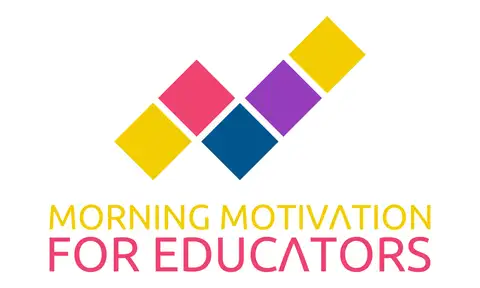From Chaos to Collective Aspiration: Lessons in Imperfect Leadership Peter Stieple
Download MP3Every year at the New Teacher Breakfast, I would welcome nearly 150 new educators to the school district. We would always start with our Assistant Superintendent for Human Resources who would announce how we’d received nearly 2,000 applications for positions and how they represented the best of the best. The Chamber of Commerce would soon follow with a welcome of his own.
Following breakfast, it was my turn. I would give the Superintendent’s welcome where I always spoke of my first teaching experience in Trailer C in Oakland, CA. Sometimes, I would tell them a story about lessons learned after a brush with chaos.
In my first year of teaching in a Spanish bilingual classroom in Oakland, California, our school adopted a reading program that required children to leave their classrooms and go to another classroom for 90 minutes each morning for reading instruction. Depending on student needs, teachers were assigned different reading levels. One grading period, I taught 6th grade English to fourth and fifth graders. It was in this reading class where I learned a valuable lesson.
Our classroom, made up almost exclusively of advanced students from other classrooms, would come to Trailer C each morning. I selected Mildred Taylor’s Roll of Thunder, Hear My Cry. I still remember the spirited conversations about race, class, and the intersectionality of race and class in the Deep South in the early part of the 20th Century.
Every morning, we’d start the lesson with five vocabulary words. I’d encourage the children to act out the words using a strategy called Total Physical Response (TPR). I thought the strategy would help the students remember those important words or phrases, what language acquisition experts refer to as “brick and mortar” words.
On this fateful morning, I selected my words and had the children act them out. I would simply announce each word. One word I remember clearly was prowl. The hunched children tiptoed as they prowled around the classroom. I think another word was pout or mope or scowl. Whatever it was, I remember them looking sad and forlorn. Then it was time for the next word.
Without establishing a shared image of what acting out the word could look like and without announcing my expectations, I announced the word. Chaos. I still have nightmares about what I witnessed.
My advanced reading students trashed my classroom. They threw over desks. They pulled down the posters. They tossed books and stood on chairs. They fully acted out the word chaos. They couldn’t hear me yelling to stop. I ran over to the wall and flicked the lights on and off. This got their attention. I marched to the front of the room and hollered, “What is wrong with you?! You’re acting like a bunch of jackasses!” To this a student looked at me and said, “I don’t appreciate you calling me a jackass.” I thought about debating with her about whether I called her a jackass or said they were acting like jackasses. Either way, it was a losing proposition.
What I can tell you is that we spent the rest of the class acting out the phrase clean up this mess. I will never forget the faces of my students when they returned from their reading classrooms. “¿Qué pasó? What happened?” And I will never forget the other teachers whose advanced readers had returned to their classrooms eager to share how they had been called jackasses! One saw me bringing my class to lunch and asked, “Soooo, how was your morning?”
I learned a lot from this awful teaching moment. I learned about setting expectations, showing positive examples, and establishing a signal for when things were getting out of control. I would tell this story to remind new teachers that they would make mistakes, and that it was ok. What’s important is that you learn from them. That’s what my work as an educator and advisor is all about.
I identify as a human-centered leader. Having an opportunity to learn from one’s experiences is fundamental to that identity. In my book, An Imperfect Leader: Human-Centered Leadership in (After) Action (and my podcast with the same name), I provide an opportunity to learn from the experiences of school and district leaders. There are leaders at every level and as we continue to develop out leadership skills there is a reality for us all, the imperfection of leadership.
In fact, I teach a model called The Human-Centered School Transformation Model, which has three dimensions, and they all lead to a Culture of Deep Learning. A culture of deep leading and deep learning is a different way to think about leadership. It asks you to think about the WHY, the WHAT, and the HOW of leading in a different way. Those three dimensions are known as: Collective Aspiration, Nested Patterns, and Leaders’ Learning Work.
Collective Aspiration makes sure everyone in the organization is on the same page and that everyone is working toward the same goal. Collective Aspiration serves as the WHY.
Nested Patterns are the behaviors of everyone in the organization and describe the behaviors that are valued. Nested Patterns include people working together and collaborating. Nested Patterns understand WHAT it means to lead.
Leaders’ Learning Work is where core processes and practices can be found. It is where we are reminded of the fundamentals of leadership. Leaders’ Learning Work is the HOW. It is the brains of the work.
Collective Aspiration, Nested Patterns, and Leaders’ Leading Work each lead us to that better place as an organization.
I am so glad to have an opportunity to connect with you today. In my book, in my podcast, and in my work as a coach and advisor, I try to project someone striving to learn from his experiences through genuine reflection. The aim of every professional interaction I have is to lift the learning and lift the imperfect leaders up. That way, when you hear the term imperfect, you’ll see strength, strength from the candor needed to recognize imperfection as a real advantage. You can find me at human-centeredleaders.com to learn more.
We’re thrilled to be sponsored by IXL.
IXL’s comprehensive teaching and learning platform for math, language arts, science, and social studies is accelerating achievement in 95 of the top 100 U.S. school districts. Loved by teachers and backed by independent research from Johns Hopkins University, IXL can help you do the following and more:
- Simplify and streamline technology
- Save teachers’ time
- Reliably meet Tier 1 standards
- Improve student performance on state assessments
🚀 Ready to see why leading districts trust IXL for their educational needs? Visit IXL.com/BE today to learn more about how IXL can elevate your school or district.
Creators and Guests

Guest
Peter Stiepleman
Human-Centered Leadership Author and AdvisorAn Imperfect Leader Podcaster-https://t.co/bfCPS5izbnInstagram and TikTok: animperfectleader

